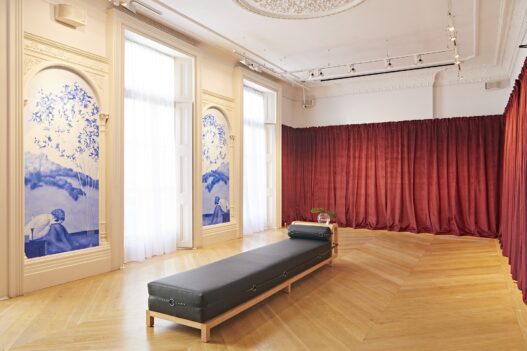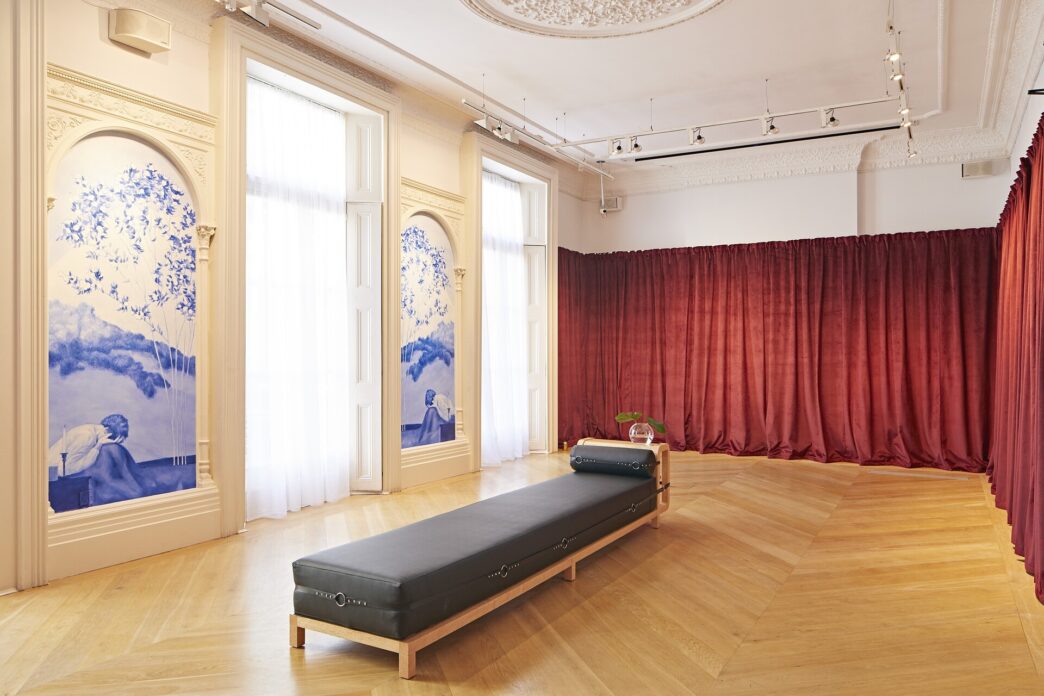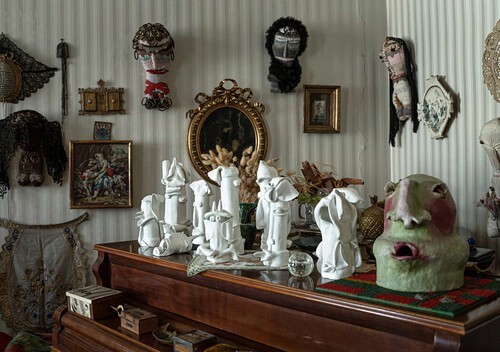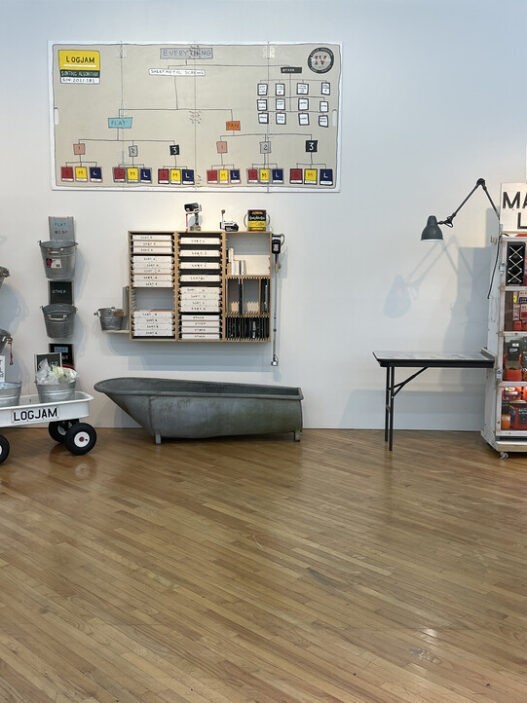June 22–September 25, 2022
The Mosaic Rooms announces Mahmoud Khaled’s debut UK solo show, Fantasies on a Found Phone, Dedicated to the Man Who Lost it.
Khaled’s ambitious transformation of The Mosaic Rooms’ period domestic architecture into the imagined homes of the owner of a lost phone involves a number of developing installations and interventions. Khaled’s fascination with historical home museums and the memorialization of unique viewpoints discovered there is continued in this piece. The artist repositions this museological form as a tool to explore a history of marginalized queer living in this new immersive project.
Khaled examines the conflict between desire and anxiety, dream and reality, throughout the show. The absence of sleep penetrates the area and serves as a metaphor for political states of being, such as displacement and a sense of not belonging. This unease is felt in the installations as the viewer, acting as a voyeur, feels both at home and uneasy.
The main area is calm, with a daybed in the center and velvet and voile drapes hanging around it. The interpretation of dreams, a book by Freud, comes to mind when looking at this piece of furniture. The length of this component, which is constructed of leather and wood and has bondage straps on it, is abnormally long. Being in the center makes this daybed a source of fear, desire, and kink. The wall paintings, which were influenced by an etching from Max Klinger’s “A Glove” series, convey a feeling of anxiousness. The space is transformed into a parody of a sleeping app with an accompanying sound composition, which invites the visitor to practice mindfulness.
A revolving leather bed in continuous motion is included in another installation called For Those Who Cannot Sleep. The piece is an homage to Hugh Hefner’s famous office bed from the 1960s, which became a stereotypical representation of heterosexual masculinity in the home. The artist grew up watching Egyptian TV and film, which likewise appropriated this round bed’s shape. Another etching from Klinger’s series is displayed on the circular surround that frames the bed, and there is a repeating soundtrack of dissonant tunes.
The location of the phone’s loss is suggested by the wallpaper motif and other items found in the fictional home’s first room, even though the phone or its owner are never shown in the exhibition. The accompanying publication, which includes pictures from the unlocked phone, sits on a bookshelf in this space. The obsessive series of images in the book alternates between the erotic, intimate, baroque, and everyday as it alludes to the dissonant and voyeuristic experience of scrolling through social media and swiping through dating apps, as well as the conflict between the intimacy of a queer male gaze and the hyper-capitalist forces of productivity and technology. A big picture of a bedroom with the words “I can’t sleep without you anymore” printed across it hangs nearby.
This exhibition is generously supported by Arts Council England, Henry Moore Foundation and The Elephant Trust.
This accompanying publication is co-published by Book Works and The Mosaic Rooms as part of Book Works Co-Series No. 23. Designed by Marwan Kaabour.
226 Cromwell Road
London SW5 0SW
UK
Hours: Tuesday–Sunday 11am–6pm
T +44 73709990
info@mosaicrooms.org




















